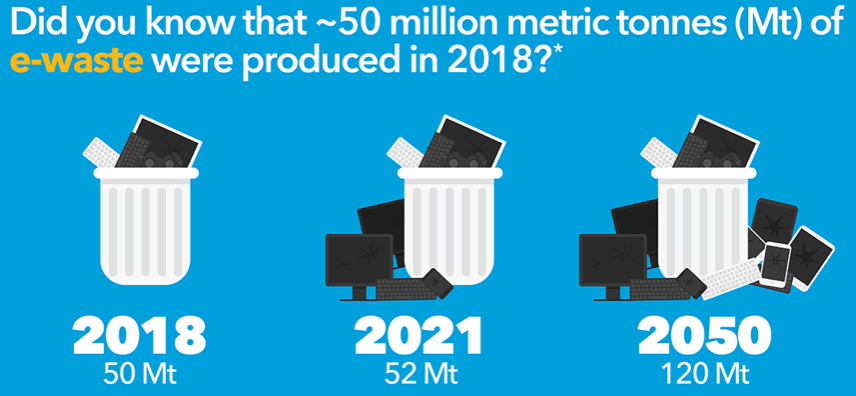The global consumption of smart phones and other electronic devices is increasing, and bringing benefits to many people in areas as wide-ranging as health, education, finance and commerce. But there is a downside: the world is now seeing a growing tsunami of e-waste.
A new report launched by the
United Nations E-waste Coalition indicates that the global economy generates approximately 50 million tonnes of e-waste every year. This is a huge amount, representing the mass of all the commercial aircraft ever produced.
Unfortunately, less than 20% of this is waste formally recycled. This results in global health and environmental risks, as well as the unnecessary loss of scarce and valuable natural materials.
But businesses, policy makers, and the public can turn this global challenge around. And the rewards will be significant. Indeed, the proper management of e-waste yields not just one, but multiple gains for development.
The new report calls for a systematic collaboration with major brands, small and medium-sized enterprises (SMEs), academia, trade unions, civil society and associations in a deliberative process to reorient the system and reduce the waste of resources each year with a value greater than the GDP of most countries.

